It looks like you're using an Ad Blocker.
Please white-list or disable AboveTopSecret.com in your ad-blocking tool.
Thank you.
Some features of ATS will be disabled while you continue to use an ad-blocker.
9
share:
From CNN Money
Bricks that grow from microorganisms, household garbage turned into art, three-wheeled bike-cars -- these startups are redefining urban living.
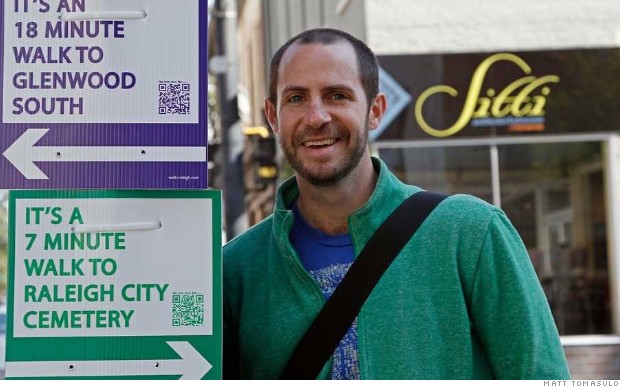
Walk [Your City], as the name suggests, wants people to showcase just how walkable their city is.
It's the brainchild of Matt Tomasulo, an urban designer and activist.
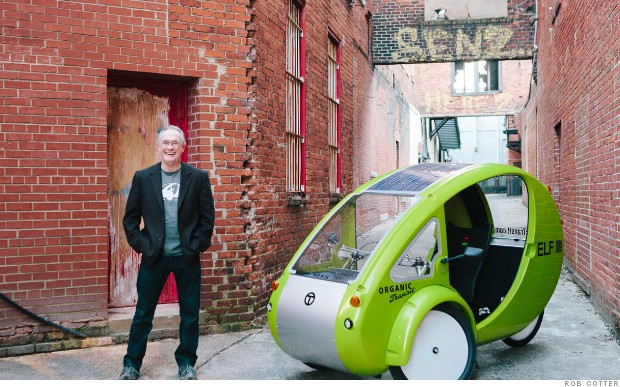
The "ELF" is Robb Cotter's dream come true.
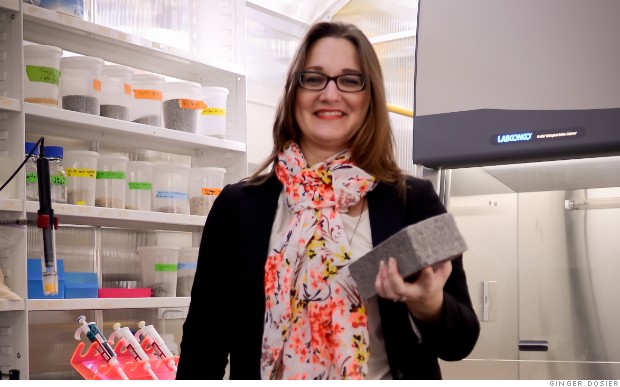
BioMASON started out as a science experiment, according to Ginger Dosier, who found a way to "grow" bricks similar to how coral reefs are formed.
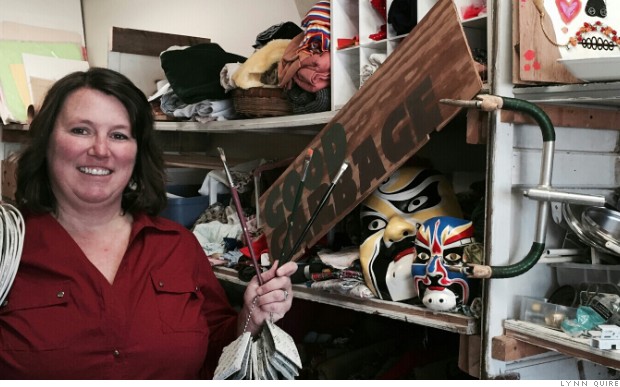
Lynn Quire was a seamstress who "generated a lot of scrap material" but didn't want to throw it away.
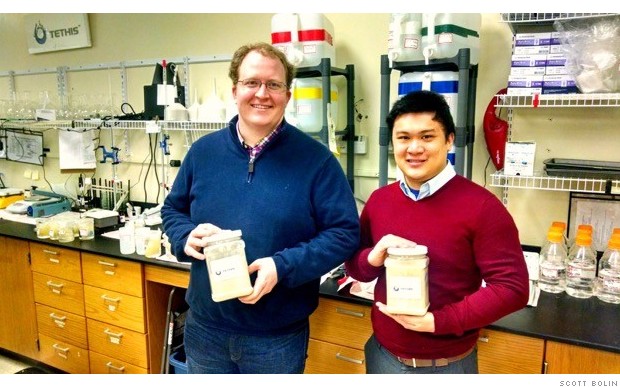
Tethis, which is Greek for "goddess of fresh water," is on a mission to make industrial wastewater reusable.
I think investments in ANY of these startups would be a SMART and great way to help create change.
Its the genius and the motivation of people like this that really make a difference.
Bricks that grow from microorganisms, household garbage turned into art, three-wheeled bike-cars -- these startups are redefining urban living.

Walk [Your City], as the name suggests, wants people to showcase just how walkable their city is.
It's the brainchild of Matt Tomasulo, an urban designer and activist.
"A big obstacle to walking is this perceived barrier of a destination being 'too far,' when in fact it is a walkable distance," said Tomasulo.
After a successful Kickstarter campaign, Tomasulo launched the business in November 2013. It sells customizable signs that say things like, "It's a 12-minute walk to downtown" or, "It's a 5-minute walk to the library." Anyone can order the signs online; Walk [Your City] makes and ships them for $20 to $60, depending on the material.
"We make them from corrugated plastic or aluminum, which is more expensive," Tomasulo said, adding that people should check with the authorities before hanging them in public places.
Over 5,000 signs have been made and installed in cities like Santa Fe, N.M., Grand Rapids, Mich., and Atlantic Beach, N.C.
"We've been pretty overwhelmed," said Tomasulo, who also inked a partnership with health insurer Blue Cross Blue Shield of North Carolina.
He hopes his efforts will promote a walking culture and "amp up interest from cities to invest in infrastructure that supports a healthier lifestyle."

The "ELF" is Robb Cotter's dream come true.
"I've always wanted to create a small, efficient vehicle that incorporates solar power," said Cotter, an auto technician and design expert.
He's done that, and a lot more, with his 160-pound hybrid electric-pedal, three-wheeled bike called ELF.
"The ELF can help reduce the carbon footprint in cities," he said. "It's environmentally-friendly, safer than an ordinary bike and you can carry cargo in it."
Cotter's startup Organic Transit launched the ELF in 2012. The bike, priced between $5,500 and $10,000, is made in Durham, N.C., and features an egg-shaped shell that shields the rider from bad weather.
It can top 20 mph using just electric power (the battery charger plugs in to any wall outlet) and 30 mph with pedaling.
Organic Transit has sold over 450 ELFs, mostly to "individuals who are using it as a commuting vehicle and for exercise," Cotter said. "One person said he even rode it from Ontario to Key West."
His next goal is to grow the market beyond just personal use. "We've had interest from businesses, universities and city agencies such as police departments," he said.
The startup is working on a more heavy-duty successor to ELF, which could potentially carry up to three passengers.
"My intent is that with every person that uses our vehicle, it'll help improve their health and drive down their transportation expenses," said Cotter.

BioMASON started out as a science experiment, according to Ginger Dosier, who found a way to "grow" bricks similar to how coral reefs are formed.
Dosier, a former architect, was interested in sustainable construction materials but "noticed there wasn't a lot to choose from."
Between 2005 and 2007, while teaching at North Carolina State University, Dosier discovered a type of bacteria that turned into cement when mixed with sand, nutrients and calcium.
Traditional masonry uses clay and fire to create bricks, and it's far from eco-friendly.
"There are over a trillion bricks made this way globally every year," she said. "That's lot of energy usage and carbon dioxide emissions."
Her method is a green alternative.
Dosier founded Raleigh-based bioMason in 2012. Since then, she's raised nearly $1 million in grants and funding. The startup has six employees and is working with its first customer: a company in California that wants to use the bricks for a courtyard.

Lynn Quire was a seamstress who "generated a lot of scrap material" but didn't want to throw it away.
But when she searched for places to donate leftover items like fabric and fasteners, she couldn't find any in her hometown of Louisville, Ky.
So in 2013, she quit her administrative job and launched a nonprofit that collects garbage -- although Quire prefers to call it "reusable material."
"I spoke to many teachers and learned that there was a big need for materials for their arts and crafts projects," said Quire, who donates the supplies to local schools and community centers.
She opened a warehouse in November 2013 and within six months, her inventory grew to 3,000 pounds -- with items ranging from wrapping paper to old calendars to spare industrial parts.
"Last year we took in 9,000 pounds of material," said Quire, who runs the operation with her husband and volunteers. "It's available for free to teachers and for a very nominal charge to anybody else."
Her business is almost in the black, and Quire hopes to move Good Garbage into a bigger space in the spring.
"Eventually I want to have multiple facilities in the region and help keep this stuff out of landfills," she said.

Tethis, which is Greek for "goddess of fresh water," is on a mission to make industrial wastewater reusable.
The startup has developed a foam-like biodegradable material that binds with pollutants, making it easier to soak them up and remove them from water.
Typically, industrial wastewater contains radioactive material, arsenic, salt and minerals. It's common to dump it into defunct wells, said co-founder Scott Bolin.
"This isn't a sustainable method," he said. "We want to not only clean the water at half the cost of traditional methods, but also make it reusable."
Bolin co-founded Tethis in September 2012 with two other partners, and has raised nearly $2 million in funding.
The firm is in the process of signing on its first industrial clients. "We're starting slowly. Once we've scaled up, we'd also be open to working with cities to clean up their water bodies," he said.
I think investments in ANY of these startups would be a SMART and great way to help create change.
Its the genius and the motivation of people like this that really make a difference.
edit on 2/17/2015 by DjembeJedi because: (no reason given)
It's endeavors like these that are most likely to "save the world" and make most pessimists wrong.
Most people, when educated, approve of these types of things and would like to help (with a caveat of "if convenient"). Education and accessibility is key to implementing good ideas... so in that respect, good post.
The ideas are already out there... now the task is to implement them.
Most people, when educated, approve of these types of things and would like to help (with a caveat of "if convenient"). Education and accessibility is key to implementing good ideas... so in that respect, good post.
The ideas are already out there... now the task is to implement them.
new topics
-
NJ Drones just another Psy-Op
Dissecting Disinformation: 1 hours ago -
Smartest Man in the World Tells His Theory About What Happens At Death
Philosophy and Metaphysics: 3 hours ago -
Covid....... Again.
Diseases and Pandemics: 6 hours ago -
US Federal Funding set to Expire December 20th. Massive CR on the way.
Mainstream News: 6 hours ago -
and14263 New Account Not the Same Old Me
Introductions: 7 hours ago
9
